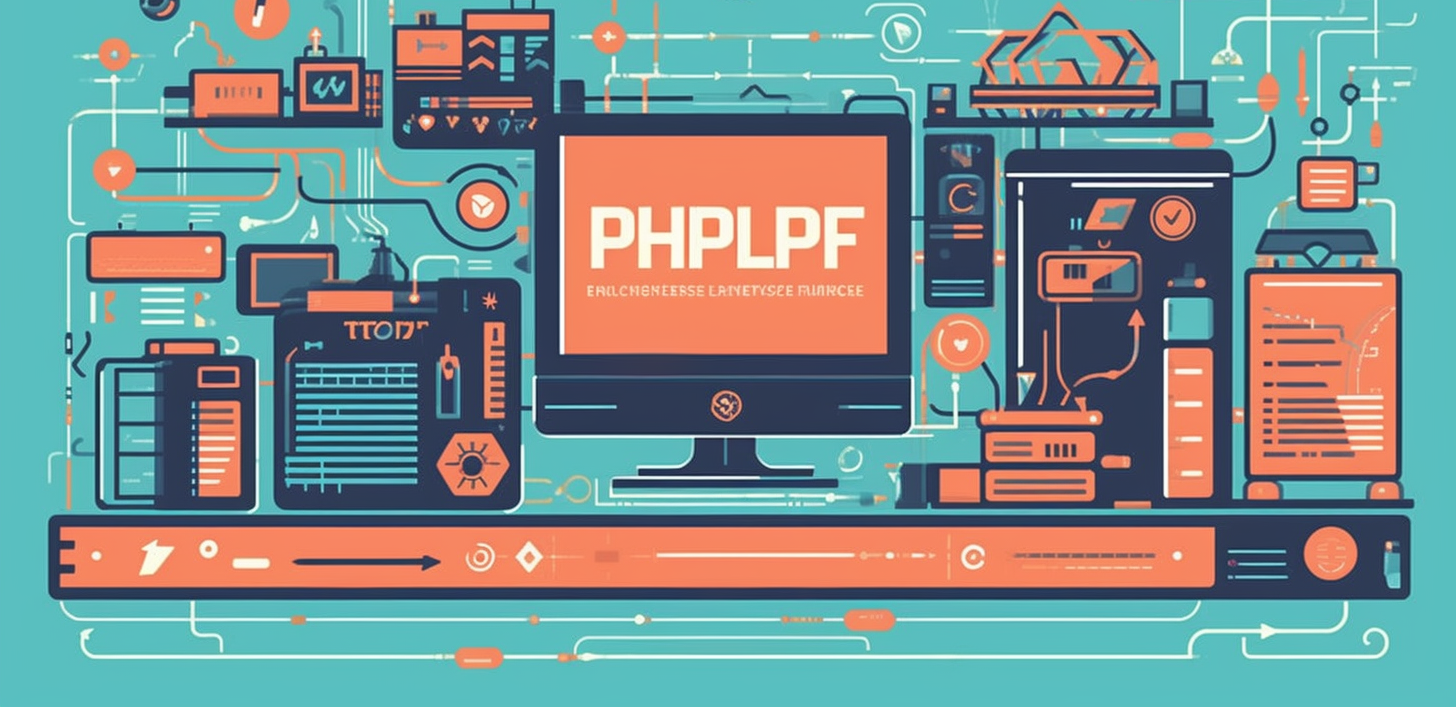PHP - The proven programming language for your web projects
PHP is one of the best known and most widely used programming languages for web development. Since its introduction in the 1990s, it has steadily evolved and is now the basis for many modern web applications and content management systems. As a leading digital agency, we want to provide you with a comprehensive overview of PHP and its uses. Discover why PHP is an ideal choice for your web project and what benefits it can offer you.
History of PHP
PHP stands for "PHP: Hypertext Preprocessor" and was first developed by Rasmus Lerdorf in 1994. Originally, PHP was a simple scripting language used to make HTML web pages more dynamic. Since then, PHP has steadily evolved and is now a full-fledged, server-side programming language. The latest version, PHP 8, was released in November 2020 and brings with it many new features and improvements.
Why PHP?
PHP offers numerous advantages that make it an excellent choice for web development projects. Some of the most important advantages are:
- Simplicity: PHP is an easy-to-learn language with a clear syntax that is easy to understand for both novice and experienced developers.
- Flexibility: PHP can be embedded in HTML code or used as a standalone scripting language. This allows developers to create dynamic web content easily and quickly.
- Platform Independence: PHP is platform independent and can run on various operating systems such as Windows, macOS, Linux and Unix.
- Performance: PHP is a fast and powerful language that is well suited for building web applications that have high performance and scalability requirements.
- Ecosystem: PHP has an extensive ecosystem that gives developers access to a wide variety of frameworks, libraries, tools, and resources.
PHP frameworks
PHP frameworks
PHP frameworks are predefined code libraries that help developers create structured, maintainable, and reusable code. They provide many useful features like routing, database abstraction, validation and authentication. Some of the most popular PHP frameworks are:
- Laravel: A modern, elegant and powerful framework that stands out for its simplicity, flexibility and intuitive syntax. Laravel is great for developing web applications of any size and complexity.
- Symfony: A comprehensive, modular, and extensible framework that is especially suited for large, complex projects. Symfony offers many reusable components and follows the best practices of modern web development.
- CodeIgniter: A lightweight, fast, and easy-to-learn framework that focuses on performance and minimalism. CodeIgniter is particularly suitable for developers who are looking for a lean and straightforward solution for their web projects.
- CakePHP: A practical and easy-to-use framework that enables Rapid Application Development (RAD) and the implementation of web applications with minimal effort. CakePHP follows the Model-View-Controller (MVC) architectural pattern and offers many helpful features such as form validation, database access, and caching.
- Zend Framework: A robust, scalable and highly configurable framework that is particularly suited for enterprise applications. Zend Framework supports modern web technologies and offers numerous features such as database abstraction, authentication and internationalization.
- Laravel: A modern, elegant and powerful framework that stands out for its simplicity, flexibility and intuitive syntax. Laravel is great for developing web applications of any size and complexity.
- Symfony: A comprehensive, modular, and extensible framework that is especially suited for large, complex projects. Symfony offers many reusable components and follows the best practices of modern web development.
- CodeIgniter: A lightweight, fast, and easy-to-learn framework that focuses on performance and minimalism. CodeIgniter is particularly suitable for developers who are looking for a lean and straightforward solution for their web projects.
- CakePHP: A practical and easy-to-use framework that enables Rapid Application Development (RAD) and the implementation of web applications with minimal effort. CakePHP follows the Model-View-Controller (MVC) architectural pattern and offers many helpful features such as form validation, database access, and caching.
- Zend Framework: A robust, scalable and highly configurable framework that is particularly suited for enterprise applications. Zend Framework supports modern web technologies and offers numerous features such as database abstraction, authentication and internationalization.
Content Management Systems (CMS) and PHP
Content Management Systems (CMS) and PHP
Many popular content management systems (CMS) are based on PHP, which simplifies the creation and management of websites and web applications. Among the most popular PHP-based CMSs are:
- WordPress: the most widely used CMS in the world, characterized by its ease of use and large selection of plugins and themes. WordPress is ideal for blogs, corporate websites and online stores.
- Joomla: A flexible and extensible CMS suitable for developing websites and web applications with a wide range of requirements. Joomla offers numerous features such as access control, multilingual support and advanced SEO capabilities.
- Drupal: A powerful and highly customizable CMS that is particularly suitable for complex and demanding web projects. Drupal has a modular system that allows developers to create custom solutions for their projects.
- WordPress: the most widely used CMS in the world, characterized by its ease of use and large selection of plugins and themes. WordPress is ideal for blogs, corporate websites and online stores.
- Joomla: A flexible and extensible CMS suitable for developing websites and web applications with a wide range of requirements. Joomla offers numerous features such as access control, multilingual support and advanced SEO capabilities.
- Drupal: A powerful and highly customizable CMS that is particularly suitable for complex and demanding web projects. Drupal has a modular system that allows developers to create custom solutions for their projects.
Possible applications of PHP
Possible applications of PHP
PHP can be used in a variety of web projects, including:
- Enterprise Websites: PHP enables the creation of professional, engaging, and feature-rich corporate websites that meet the needs of businesses.
- E-commerce platforms: PHP can be used to develop powerful online stores that meet the needs of customers and merchants.
- Social media platforms: PHP is ideal for developing social media platforms that enable user interaction and real-time communication.
- Web applications: PHP is an ideal choice for developing web applications such as CRM systems, project management tools, learning platforms, and more.
- API development: PHP enables easy development of RESTful APIs that facilitate integration of web applications with other systems and services.
- Enterprise Websites: PHP enables the creation of professional, engaging, and feature-rich corporate websites that meet the needs of businesses.
- E-commerce platforms: PHP can be used to develop powerful online stores that meet the needs of customers and merchants.
- Social media platforms: PHP is ideal for developing social media platforms that enable user interaction and real-time communication.
- Web applications: PHP is an ideal choice for developing web applications such as CRM systems, project management tools, learning platforms, and more.
- API development: PHP enables easy development of RESTful APIs that facilitate integration of web applications with other systems and services.
PHP frameworks are predefined code libraries that help developers create structured, maintainable, and reusable code. They provide many useful features like routing, database abstraction, validation and authentication. Some of the most popular PHP frameworks are:
Many popular content management systems (CMS) are based on PHP, which simplifies the creation and management of websites and web applications. Among the most popular PHP-based CMSs are:
PHP can be used in a variety of web projects, including:

PHP is a powerful and proven programming language that is perfect for web development. With its ease of learning, flexibility, platform independence and extensive ecosystem, PHP offers developers and businesses a solid foundation for successful web projects
As a digital agency, consulting and services company, we are very familiar with the technology and the possibilities that PHP offers. Our team of experienced PHP developers is ready to help you plan, develop and implement your web projects, whether it's building a corporate website, developing an e-commerce platform or implementing a custom web application.
